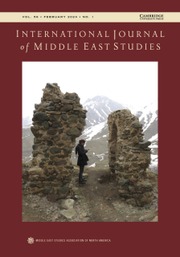The Rebel and the Imãm in Early Islam
Engaging with contemporary debates about the sources that shape our understanding of the early Muslim world, Najam Haider proposes a new model for Muslim historical writing that draws on Late Antique historiography to challenge the imposition of modern notions of history on a pre-modern society. Haider discusses three key case studies - the revolt of Mukhtar b. Abi 'Ubayd (d. 67/687), the life of the Twelver Shi'i Imam Musa al-Kazim (d. 183/799) and the rebellion and subsequent death of the Zaydi Shi'i Imam Yahya b. 'Abd Allah (d. 187/803) - in calling for a new line of inquiry which focuses on larger historiographical questions. What were the rules that governed historical writing in the early Muslim world? What were the intended audiences for these works? In the process, he rejects artificial divisions between Sunni and Shi'i historical writing.
- Contains an accessible and comprehensive overview of current controversies in the study of early Islamic history
- Employs three specific case studies to shed light on broad historiographical questions
- Challenges modern assumptions about the critical sources shaping our understanding of the early Muslim world
Reviews & endorsements
‘… this uncompromising analysis will appeal to scholars of early Islam as well as to students of politics and rhetoric - especially those concerned with the interplay among truth, fact, fiction, and influence in scholarly and aesthetic writing … Highly recommended.’ R. A. Miller, Choice
‘… an exemplary study of sectarian history writing about Shiʿi figures…’ Edward Zychowicz-Coghill, Shii Studies Review
Product details
October 2019Hardback
9781107026056
316 pages
235 × 156 × 20 mm
0.64kg
Available
Table of Contents
- 1. Modeling Islamic historical writing
- 2. The rise and fall of Mukhtâr b. Abî 'Ubayd (d. 67/687)
- 3. The life of Mûsâ b. Ja'far al-Kâẓim (d. 183/799)
- 4. The last years of Yaḥyâ b. 'Abd Allâh (d. 187/803)
- 5. Reconsideration
- Appendix. The narrative elements of Mukhtâr's revolt.










